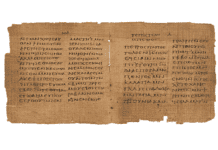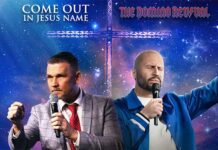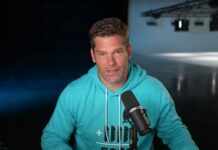You write of King’s kitchen vision after he received a phone call from a white supremacist in 1956, threatening his life. What difference did it make for his ministry and activism to have that moment?
Dr. King actually came to a clearer sense of himself as an ethical prophet through that vision in the kitchen because the voice that spoke to him that night, around midnight, said, “stand up for justice, stand up for truth. And lo, I will be with you, even until the end of the world.” Those are the words of Jesus from the New Testament. So he found through religious experience what he had not been able to find in philosophy and theology.
You note that King wrote: “There is some element of truth in all religions.” How did his connection with leaders like Mohandas Gandhi, Rabbi Abraham Joshua Heschel and Thích Nhất Hạnh enhance his interest in religious diversity and distaste for religious bigotry?
Dr. King came up with a new and creative approach to interreligious dialogue, rooted in a Christian-Jewish-Hindu-Buddhist-Islamic solidarity against structures of oppression and exclusion and injustice. He tried to intersect people of different religions in his struggle for both civil and human rights. I think it speaks not only to his universal concern for humankind. It also speaks to his theological and philosophical liberalism, because you don’t have fundamentalists talking about respecting other religions. But Dr. King argued that no religion has a monopoly on truth.
How do you analyze what you call “the truth-telling about who and what King was as a human being,” specifically that he fought against racism so much and less so about sexism and he was described in some reports as an adulterer?
I explain that in terms that Dr. King used himself. Dr. King argued that we’re all paradoxical creatures. We have a capacity for good and a capacity for evil. And the struggle in life for him, he said, was always to keep that good self in control of that evil self. We have both, and at times we all fall, and that’s just a fact of life. And he admitted over and over that he was not a saint, that at times he had fallen short. But the important thing was that he was always interested in doing the will of God even if he failed. Interestingly enough, when it came to the philandering, the adultery issue, Dr. King ultimately admitted to his own wife that this had occurred. I think that speaks to his capacity as a truth teller.
Dr. King argued that truth grows. I think, if he were alive today, he would be very supportive of women’s liberation. But it was not a major issue in that time, and he did make statements, of course, against this idea of women being subservient to men.
You also said that marching along Southern highways and in the streets was for King a “visual message about not surrendering to the machinations of evil and untruth.” Do you think more recent protests, including by supporters of the Black Lives Matter movement, and maybe others, are accomplishing the same goal, or are they different in some ways?
This is how Dr. King understood the civil rights movement: When you go out and march, boycott and hold prayer vigils in the street, demonstrations in the street, all of that is designed to expose evil in society and to force people to confront and deal with that evil. So I would say, in that sense, Black Lives Matter demonstrations, the MeToo movement demonstrations, demonstrations held by students in the March for our Lives against guns, they are all the same in that regard.
ARCHIVE: MLK50
This article originally appeared on ReligionNews.com.











